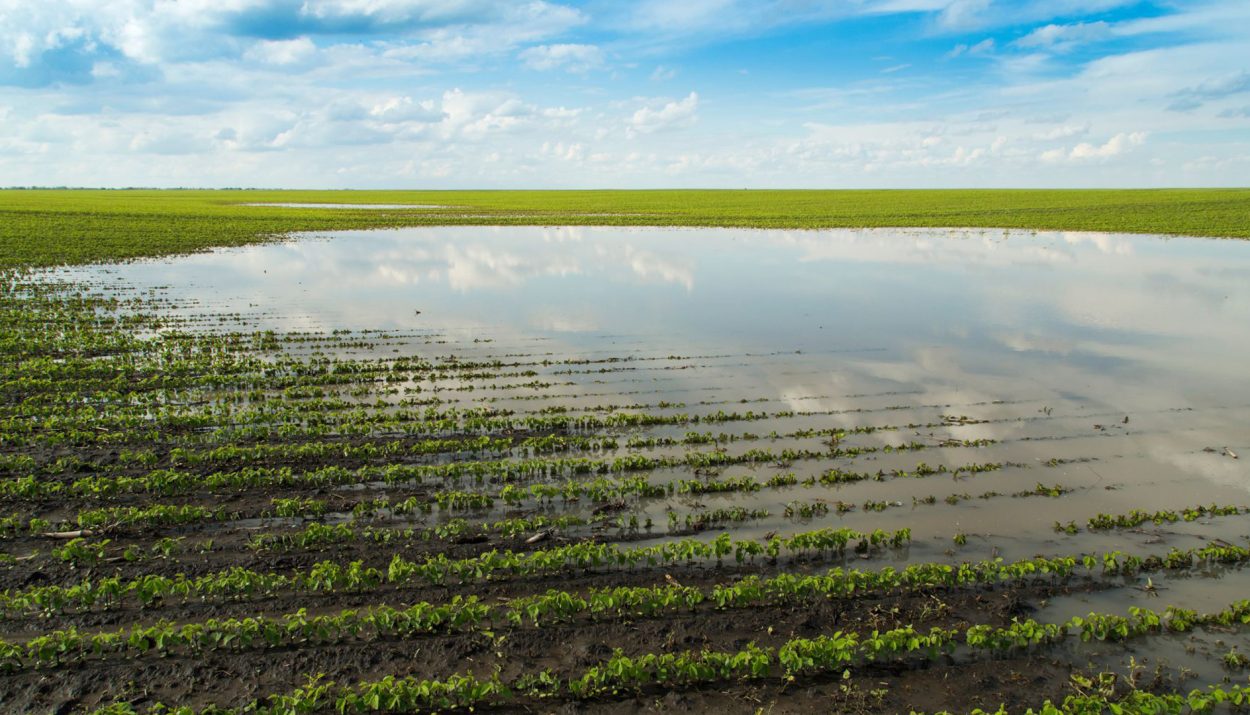Farmers in the United Kingdom are growing concerned about the record amount of rainfall the country has seen over the past 18 months. As farms continue to flood, many are worried that they might not have a harvest this year – and that could spell trouble for consumers. Here’s what UK residents need to know.
UK Has Eighth-Wettest Winter On Record
According to Provision Met Office figures, the UK experienced 445.8mm of rainfall during the winter season – which is 29% more than the long-term average. They define the season as December, January, and February.
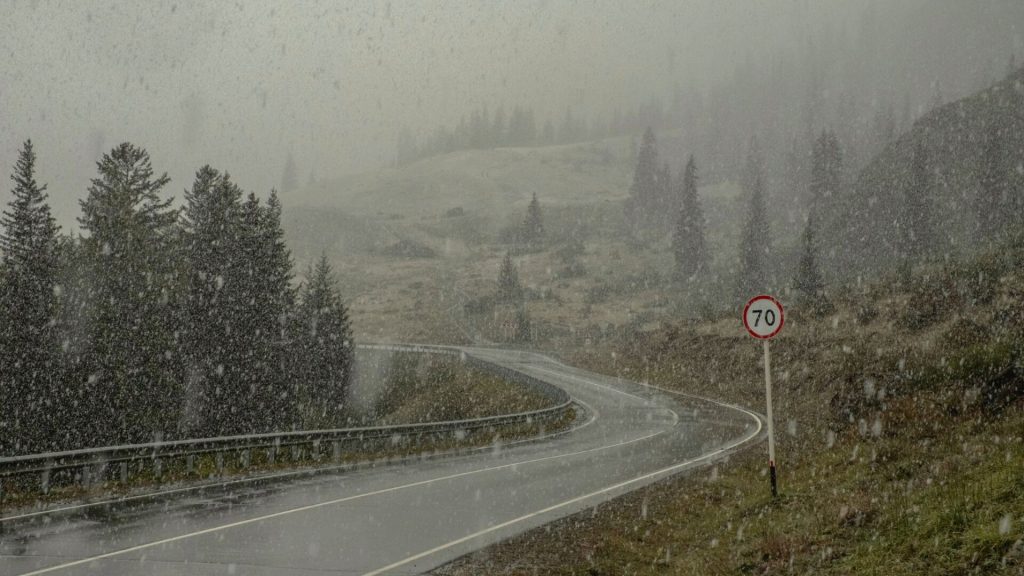
It was the eighth wettest winter since records began more than 150 years ago, with central and eastern England and Scotland seeing the worst of it. Unfortunately for UK residents, the rainfall (and subsequent floods) has only continued into the spring season.
England Sees Record Rainfall In 18 Months To March
England set a new record with 1,695.9 mm of rain falling in the 18 months between October 2022 and March 2024 – and that dates back all the way to 1836, when comparable data began. The previous record was 1,680.2mm from September 2022 to February 2024.

The rainfall continued in March 2024. While it only ranked as the 19th wettest March in England’s history, there was 62% more rainfall than an average March – totaling 94.3mm last month alone.
11 Named Storms Since September
According to the UK Storm Centre, the 2023-24 storm season, which runs from September 2023 to August 2024, has already seen 11 major storms rummage their way through the UK. Six of those 11 storms arrived in December and January.

The most recent storm, Kathleen, was named on April 4 and featured wind gusts of over 70mph (112km/h). It left around 12,000 customers without electricity and resulted in a number of flight disturbances and sports matches being rescheduled.
Why So Much Rainfall In The UK?
According to BBC, the recent rainfall can be attributed to the jet stream, which is spinning up areas of low pressure and sending them toward the UK. The areas of low pressure usually correlate with moisture and rain.
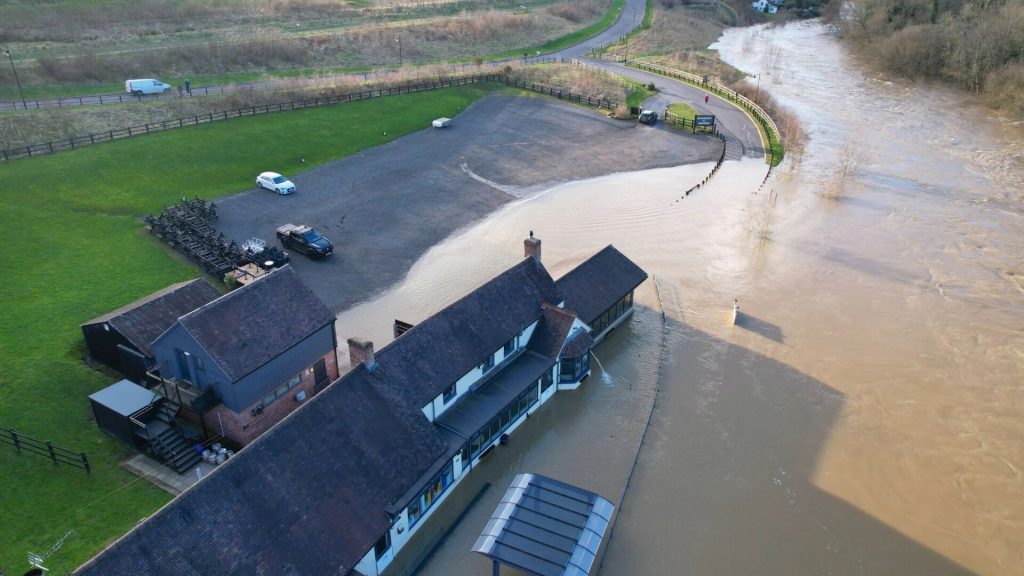
“Coming off the back of a wet winter and what has been a wet start to the year, many areas have very saturated ground, which has increased the sensitivity to rainfall events in recent weeks,” said Met Office scientist Emily Carlisle.
Climate Change Is Making It Warmer
To make matters worse, climate change is causing temperatures to rise – and in a warmer climate, those rain-bearing weather systems are likely to be even wetter. That could be a big reason why the UK is seeing so much rain right now.

Think of these areas of low air pressure like a sponge filled with water. The warmer the climate, the more water in that sponge. That water will eventually be wrung out of that sponge, and that’s where the rainfall comes from.
Farmers Struggling To Stay Dry
Where there’s excessive rainfall, there’s flooding. And where there’s flooding, there are farmers struggling to do what they do best. That’s the harsh reality many farmers are faced with across the United Kingdom – and it doesn’t paint a pretty picture for the future.
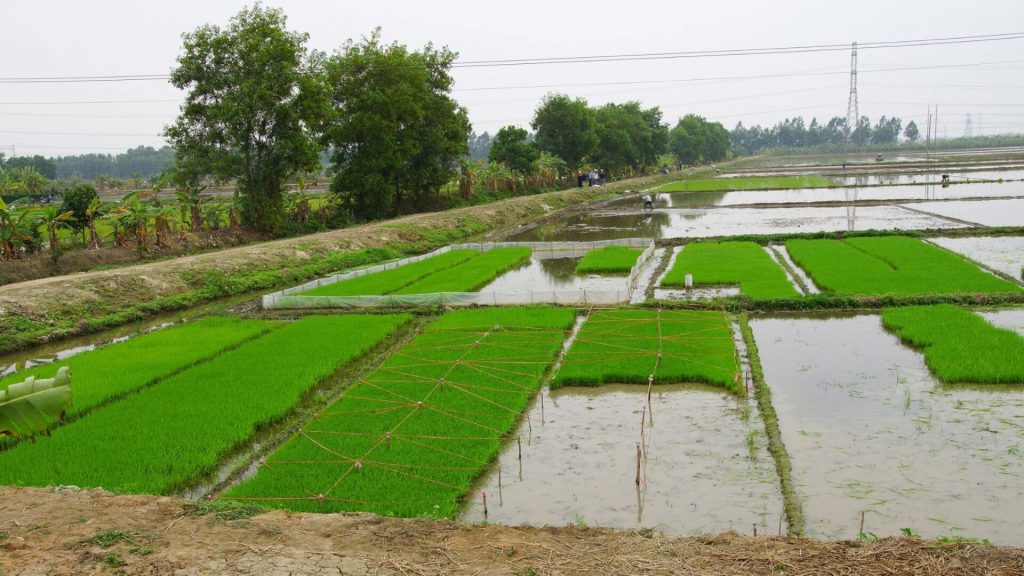
According to the Agriculture and Horticulture Development Board, wheat yields are expected to be down 15% this year. Winter barley will be down 22%, while oilseed rape will be down 28% – which represents the biggest drop since the 1980s.
Joe Stanley Facing First Year Without Harvest In 80 Years
Joe Stanley, an arable and livestock farmer at a research farm in Leicestershire, recently spoke about the current state of his farm – which he says could be facing its first year without a harvest since the farm began operation after World War II.
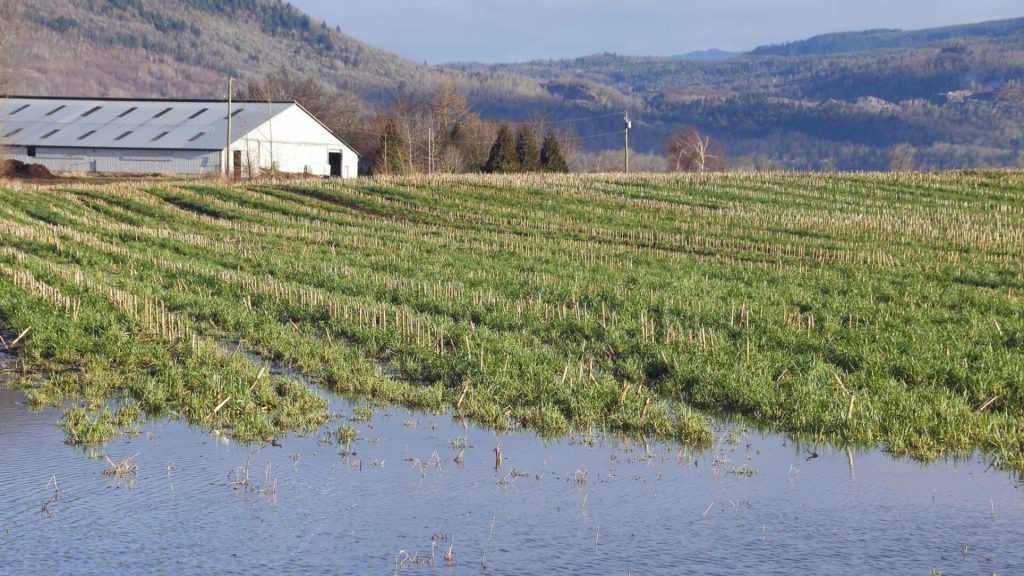
“Unless it basically stops raining today and then it becomes nice and sunny and windy, we’re not going to get any crops in this year. That’s a real danger,” he said – adding that many farmers will be in the same situation as he is right now.
Many Farmers Could Go Out Of Business
Stanley went on to describe this as ‘an existential moment’ in UK history – blaming climate change for reducing food security across the country and putting many farmers on the brink of going out of business.
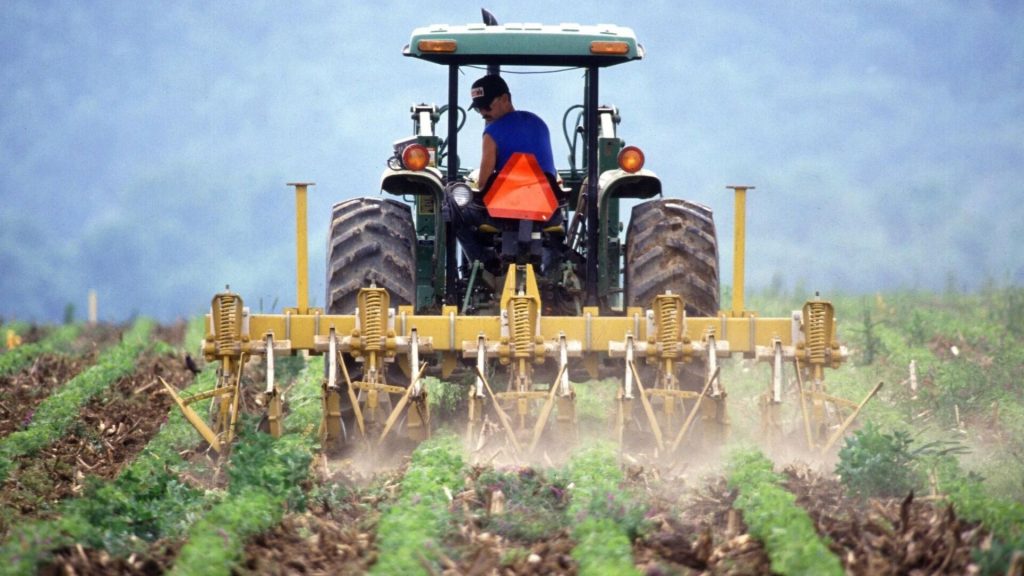
“The problem that we’re facing is that weather is becoming so extreme that it is overwhelming our ability as farmers to continue to grow crops at all in some places,” he said.
Rachel Hollis Believes A ‘Crisis Is Building’
According to the National Farmers’ Union (NFU), many farmers fear that crops planted during the autumn won’t survive the flooding. Not only that, but lamb numbers are also decreasing as many of them didn’t survive the unseasonably cold temperatures and heavy rainfall.
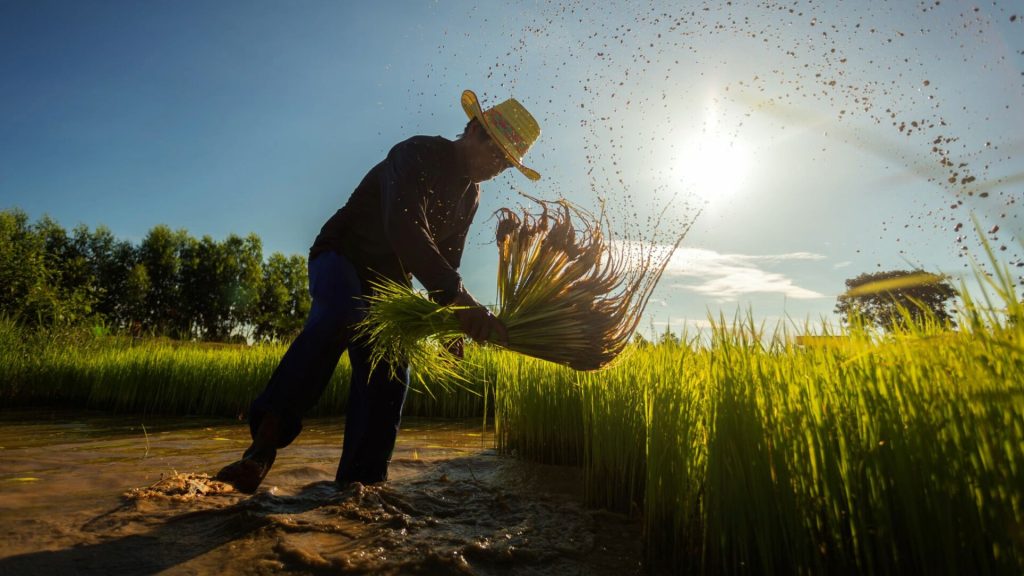
“It’s no exaggeration to say a crisis is building,” said Rachel Hallos, vice president of the NFU. “While farmers are bearing the brunt of it now, consumers may well see the effects through the year as produce simply doesn’t leave the farm gate.”
Worse Than The 2019 Floods
Mark Chatterton, a director at business advisers Duncan & Toplis (one of the largest independent accounting and business advisers in the East Midlands), warns that the impact of the recent floods could outweigh what the country saw in 2019.
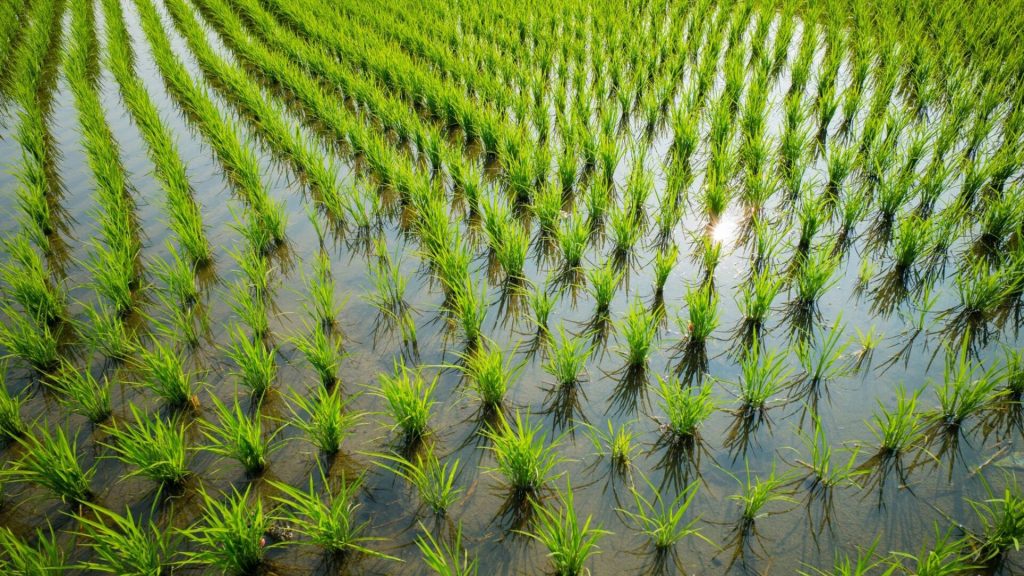
Farm businesses saw an 18% decrease in profits during the 2019 flood season, but Chatterton says this year’s floods could be even worse than that – echoing the concern that many farm businesses could go out of business if things don’t improve fast.
Farming Recovery Fund Opens On April 9
The UK government opened a Farming Recovery Fund on Tuesday (April 9). The fund aims to support farmers who suffered uninsurable damage to their land due to flooding this winter. The Rural Payments Agency (RPA) is contacting farmers directly about the support that’s available.
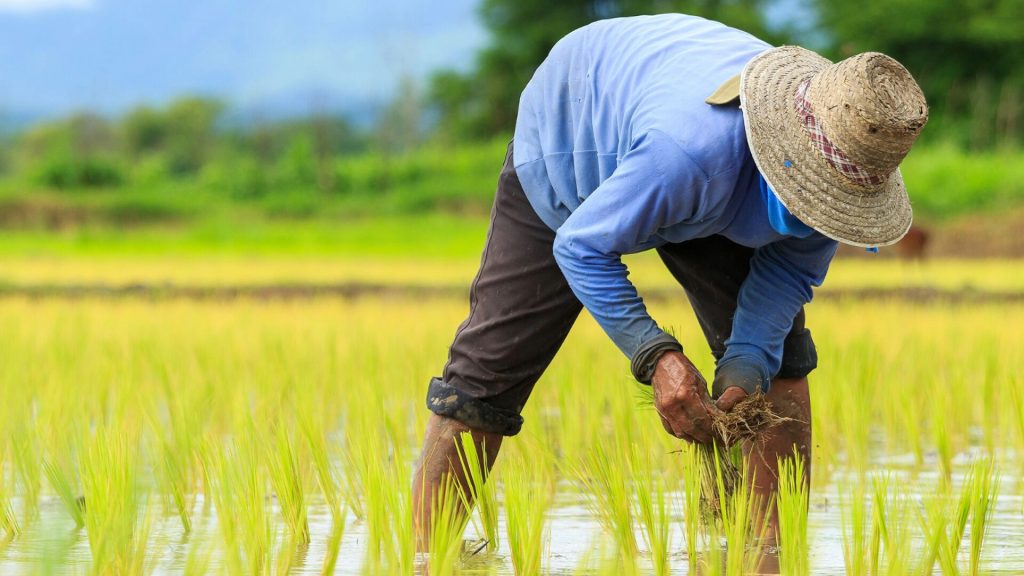
It’s immediately available for areas including Gloucestershire, Leicestershire, Lincolnshire, Nottinghamshire, Somerset, Warwickshire, West Northamptonshire, Wiltshire and Worcestershire – which have been severely impacted by rainfall and flooding.
Mark Spencer Wants To Improve Food Resilience
Farming Minister Mark Spencer wants UK farmers to know that the government is by their side as they navigate the many challenges ahead.

“I know how difficult this winter has been for farmers, with extreme weather such as Storm Henk having a devastating impact on both cropping and grazing, as well as damaging property and equipment,” he said, adding that grants will amount to as much as £25,000.

